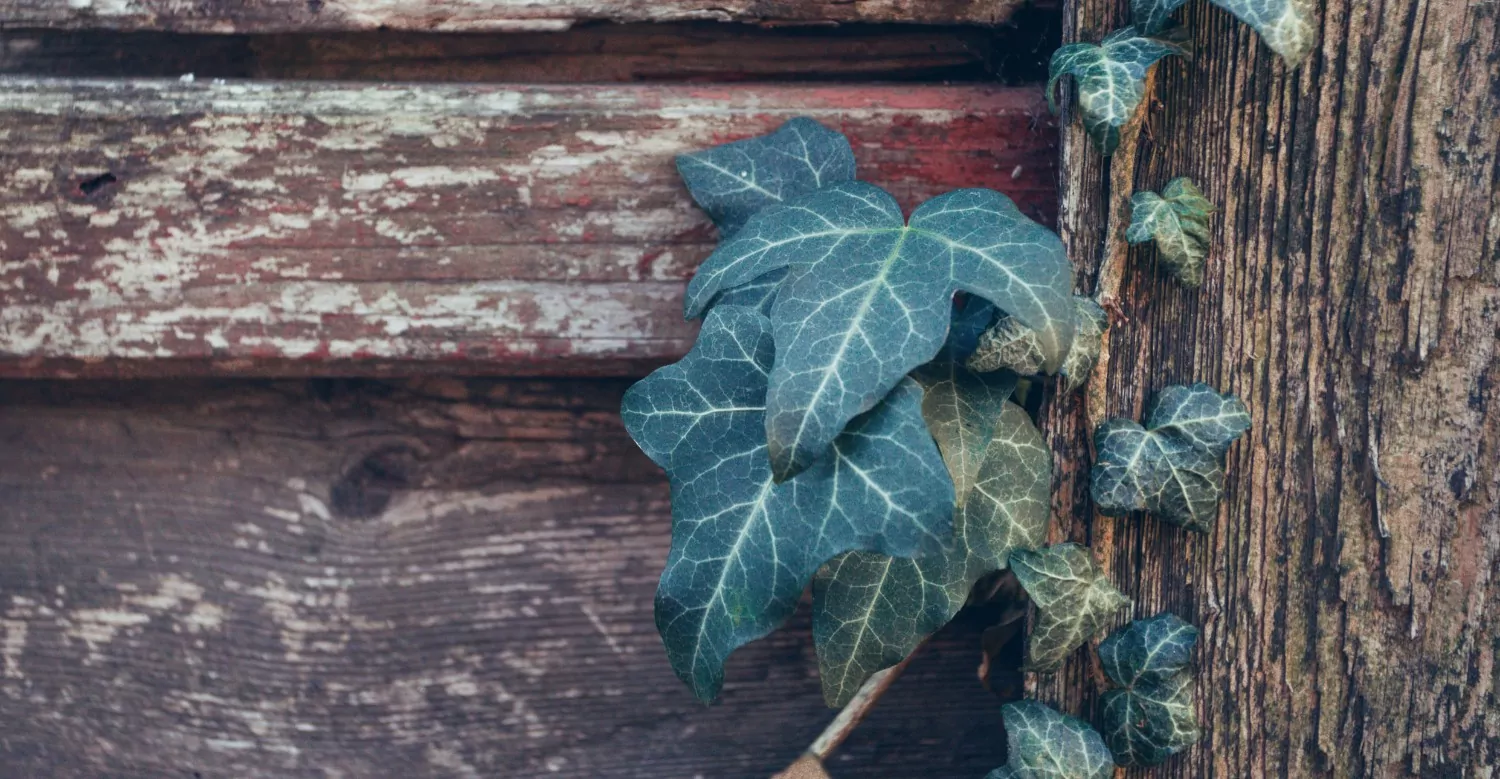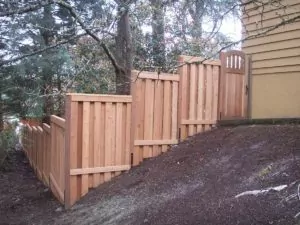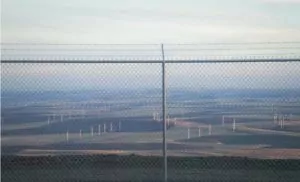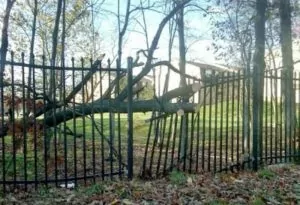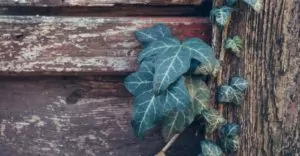
Fast-growing vines — especially woody vines — can damage wood fences. There are a lot of different types of vines out there, so you’ll have to do a little homework.
Consider examining the life cycles of the following to give yourself a good foundation upon which to build your vine-growing knowledge.
Note: Some of these are not appropriate for wooden fences. We’ll go over a few of them below, but nothing beats solid research and conversations with your friendly neighborhood garden center. Unless they’re invasive, most of these are fine for vinyl or chain link fences or for ground cover.
- Evergreen vines
- Trumpet vines
- Climbing vines (and climbing plants)
- Flowering vines
- White flowers
- English ivy (take caution with fast-growing ivy; it’s a super grower!)
- Vines that attract hummingbirds
- Perennial vines
- Annual vines
- Virginia creeper
- Clematis
- Twining vine
- Coral honeysuckle
- Tubular flowers
When you speak with experts, they’ll likely tell you that some species — such as the coral honeysuckle and the clematis — are perfect for vinyl fencing.
With aluminum fences, just about anything will do. (Again, stay away from invasive species. They crowd out native vegetation and can become difficult to eradicate.)
All vines — regardless of the type of fence upon which they grow — attract moisture and bugs. Plus, invasive species and woody vines can grow rapidly, becoming difficult to control. They could spread from the fence to your lawn to your home.
Choose wisely when deciding which vine to twine!
Will Climbing Vines Damage A Wood Fence?
Many vines will cause damage to wooden fences. Unlike aluminum or vinyl fences, wooden fences are susceptible to damage from the elements and from the vines that you choose to attach to them. So what are the best climbing plants for wooden fences? Non-woody (i.e., green herbaceous) vines are great for wooden fences.
DoItYourself.com reports that annuals and perennials can provide excellent and beautiful cover for your wooden fence. They suggest a few vines, which you can see here.
Other sources, however, caution against certain species, such as wisteria or trumpet vines. Although they can be quite beautiful, attracting hummingbirds to their sweet flowers, they can lead to fungus and rot. They can also grow so quickly and thickly that they literally crack your fence apart over time.
So yes — flowering vines cascading over a wood fence have a rustic charm. However, if you want your fence to last, allowing vines to grow on wood structures isn’t a good idea. Some climbing vines have claws that cling and work into the boards. Other plants wrap, twine, or sprawl over a fence.
At the risk of repeating ourselves: Whatever method a vine uses to attach itself to your fence, it will create a humid environment that promotes mildew and rot. Keep vines off the wood boards, and you’ll extend the time between fence repairs.
Keep Climbing Vines In Their Place
You can grow vines and protect a fence by investing in a sturdy trellis or arbor. These structures can be wood, vinyl, or metal. They can be simple, but to be effective they need to be strong. The sturdiest type of trellis or arbor will have fence-like posts to support a framework of bars.
Trellises come in a variety of sizes and designs. Metal structures tend to be more sturdy than wood. If you choose a flimsy trellis, it may not be able to support the weight of a vigorous plant.
Protect Your Wood Fence
Place a trellis or arbor a few feet away from a fence. Vines can be prolific growers and may make their way to a fence that is too near a trellis. Plantings at the base of a wood fence can litter the fence and posts with organic matter.
Wood fences need to be protected from moisture. Point sprinklers away from a fence. Even cedar, which is resistant to rot, lasts longer when it’s cleaned and sealed annually and kept clear of plants year-round.
Choosing the Right Vines
Some vines are more damaging than others. Ask your local nursery for plants that do well in Washington and Oregon. Climbing vines such as English ivy and wisteria can be invasive.
Choose carefully before you plant a vine because some can take over a garden. Clematis and climbing roses are good choices and are less likely to grow out of control.
If you love the look of a flowering vine, there’s no need to pass on its beauty. With some planning and forethought, you can grow these climbers without fear of damaging your wood fence.
Expert Fence Repair in Portland, Oregon
Has your fence been damaged by vines, mildew, or rot? Pacific Fence & Wire can help you repair or replace a fence in disrepair. Contact us today for more information about our services.
We’re the premier fencing company in the Pacific Northwest. We serve Portland, Oregon, and the surrounding metro area. You can see our work in Yakima, Hood River, The Dalles, Pendleton, Bend, Eugene, Corvallis, the Oregon Coast, eastern Oregon, eastern Washington, Idaho — and all up and down the Columbia River Gorge. Get in touch with us today!


